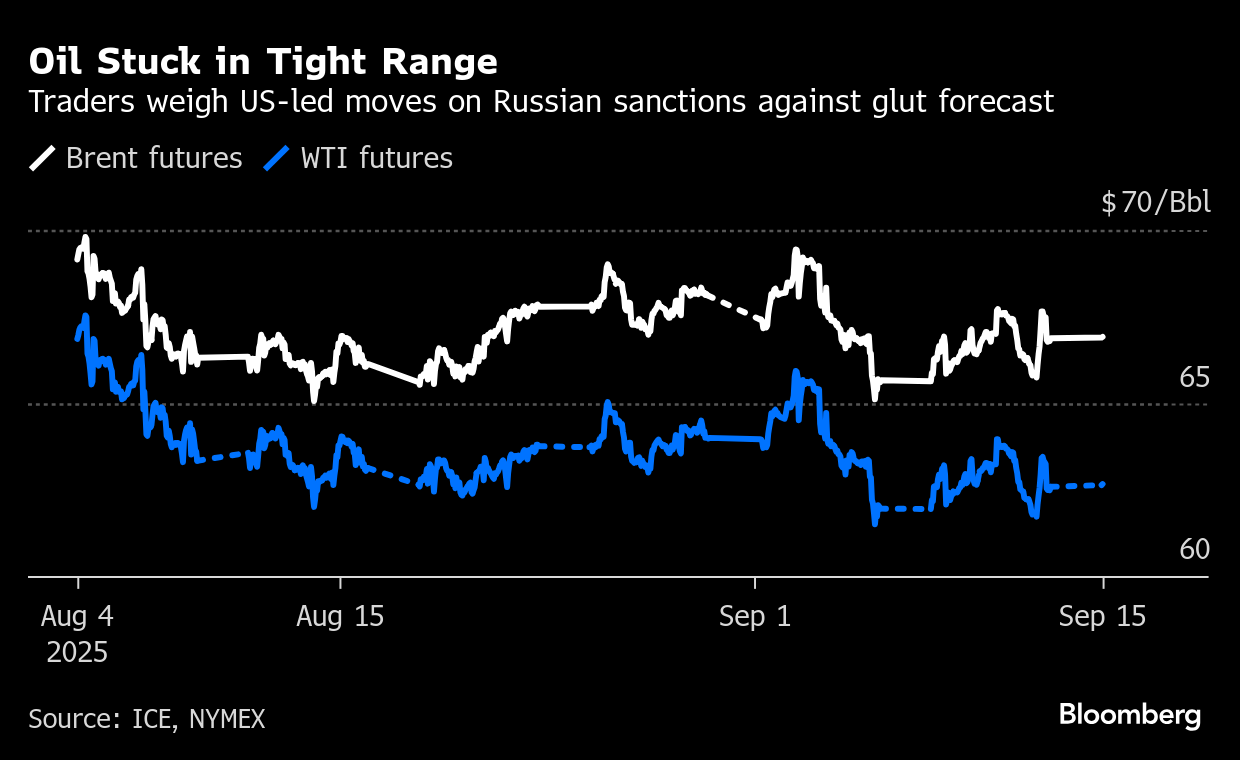Oil Edges Higher With Focus on Russian Trade, Looming Oversupply
(Bloomberg) -- Oil extended a gain from last week, as traders weighed moves to crack down on Russian flows against forecasts for a surplus later in the year.
Brent traded above $67 a barrel, after adding 2.3% last week, while West Texas Intermediate was around $63. US President Donald Trump reiterated calls that Europe must stop buying oil from Russia, after earlier saying he’s prepared to move ahead with “major” sanctions on crude supply from the OPEC+ member if NATO countries do the same.
While most European nations have cut back or stopped purchasing Russian oil, several members of the North Atlantic Treaty Organization — including Hungary and Turkey — continue to do so. Trump’s increased pressure on the alliance comes as the US is set to urge its allies in the Group of Seven to impose tariffs as high as 100% on China and India for their purchases of Russian oil.

Traders are also monitoring developments in the Middle East following last week’s strike by Israel in Qatar, as well as attacks by Ukraine on refineries and ports in Russia. Over the weekend, drones struck the Kinef site, owned by Surgutneftegas and one of the nation’s largest, with annual capacity of more than 20 million tons.
“The Ukraine stalemate is the key factor in the oil market and the immediate risk is to the upside from the potential for more sanctions and more strikes on Russian oil export infrastructure,” said Vandana Hari, the founder of market analysis firm Vanda Insights in Singapore.
Oil has traded in a range of less than $5 a barrel for most of the past month, with prices buffeted by the competing forces of geopolitical risks and bearish fundamentals, which led hedge funds to cut their bullish position on US crude to the lowest on record. OPEC+ has started to roll back a new layer of halted oil production ahead of schedule — leading the International Energy Agency to project a record surplus next year.
“Expectations of an overhang exert a downward push, but only as and when the Ukraine news slows down,” Hari said.
©2025 Bloomberg L.P.





